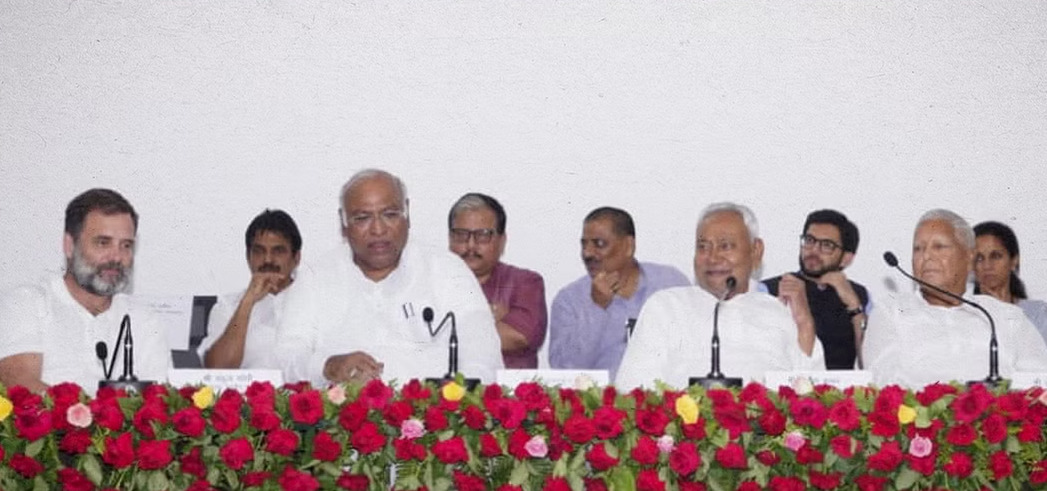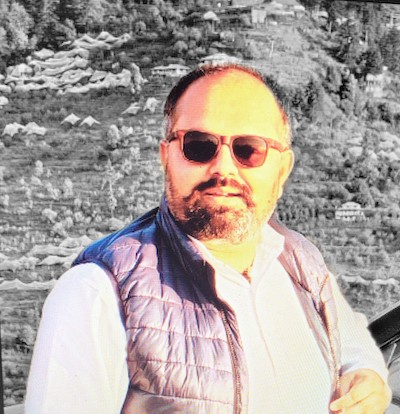Exactly two decades after Congress’ brainstorming convention was held in Shimla to defeat the then NDA government led by Atal Bihari Vajpayee, the opposition parties are trying to script an alliance to strategise to take on Bharatiya Janata Party (BJP) in the next general elections.
After the recent Patna meeting, The Congress and some of the other opposition parties will meet in Bangalore — the capital of Karnataka– a state lately won by the Congress. Briefly, the meeting was scheduled in Shimla but the NCP patriarch Sharad Pawar announced a fresh venue.
The Shimla may have missed the opportunity to host the parties rallying against Modi-led BJP, but it was Shimla where Congress in July 2003, decided to come out of the isolationist mode of politics to counter the then Prime Minister Atal Bihari Vajpayee-led National Democratic Alliance (NDA) government— an alliance of almost two dozen political outfits.
Congress is ready to ally with other parties to chalk out a strategy, but several things have changed in two decades. The opposition is not as stronger as it was in 2003, but the NDA led by BJP has grown stronger.
The NDA led by former prime minister AB Vajpayee had 302 seats including 182 of the BJP in 1999, while today BJP alone has 303 seats and the NDA tally is at 329. As far as the opposition is concerned, Congress had 115 seats in 1999 but reduced to 52 in 2019.
In 2003, Congress was led by Sonia Gandhi and young Rahul (ten 33 years old) had young leaders including Sachin Pilot, Jyotiraditya Scindia, Jitin Prasada, and R.P.N Singh. Later Milind Deora, Jitendra Singh, Ajay Maken and Manish Tiwari. By now, Prasada, RPN Singh and Scindia have joined BJP while Pilot, Deora, and Tiwari are disgruntled within the Congress. Only Maken and Jitendra Singh stay loyal to Gandhi Family.

Congress however is upbeat after Rahul Gandhi’s Bharat Jodo yatra followed by winning two elections back to back. But the alliance and its strength depend upon the sacrifices Congress is ready to make. Many satraps would not like Congress to grow in their territories. If the Congress is ready to sacrifice seats for partners, they— especially Nitish Kumar-Lalu-led alliance in Bihar and Mamata’s TMC in WB— will be a happy lot.
A senior congressman said the parties will discuss such issues in the Shimla meeting. However, talking about the leader of this alliance is a bit early but the next meeting will surely clear the air over the upcoming alliance.
In 2003, Congress passed a resolution that Son Gandhi would lead the party in the General election of 2004 and also opened itself for the alliance. Later in 2004, Congress won 145 while BJP settled at 138 seats but Congress was more acceptable for regional parties which led to the formation of UPA—supported by the left.
2003 —was an era of strong opposition and a fragile ruling front while the situation now is completely different. Congress is weak in terms of numbers as compared to 2003, and so are the other opposition parties while the BJP is the strongest led by Prime Minister Narendra Modi.
After the first round of meetings hosted by Bihar Chief Minister Nitish Kumar in Patna, the second meeting is scheduled in Shimla— the state capital of Congress-ruled Himachal Pradesh. Congress got itself rejuvenated after winning Himachal Pradesh in December last year, followed by Karnataka victory.
Now, almost a year ahead of the 2024 general election, opposition parties including Congress, JDU, RJD, S.P, AAP, NCP, Shivsena, National Conference, and PDP are trying to stitch a formidable alliance. However, Andhra Pradesh’s former CM Chandrababu Naidu, who tried to form a similar alliance five years ago, is not a part of this renewed effort, besides Andhra CM Jagan Mohan Reddy and Telangana CM and BRS Chief KC Rao.
As the phrase goes– there are many slips between a cup and lips– there still are many things yet to be addressed by the political parties dreaming of dethroning Modi.

Saurabh Chauhan, an independent journalist, has over 15 years of experience in Print and Digital Media. He has extensively written on a variety of issues including women’s rights, environment, crime, governance, finance and politics at Shimla, Chandigarh and Lucknow. Saurabh currently divides his time between Shimla and his native place in Kotgarh (Shimla Hills).



